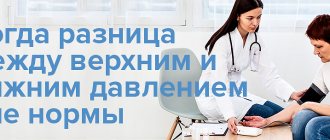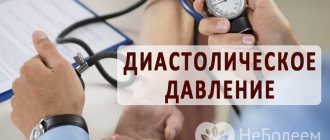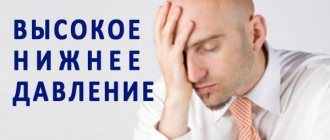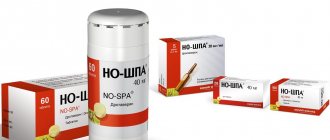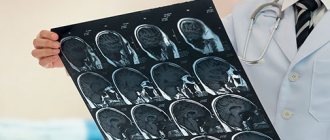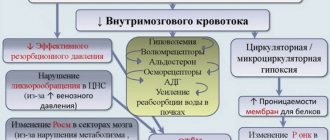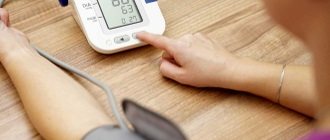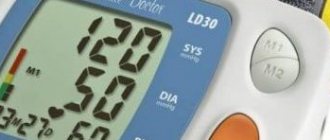Almost everyone knows that the standard norm for a person’s blood pressure is 120 over 80. Many people think that any deviations up or down already indicate a disease. This is not true, because even a serious difference in the figures of real and normative blood pressure may not cause concern in a particular situation. Let's figure it out: is pressure 110 over 70 normal or pathological? Is it necessary to see a doctor?
What is considered normal blood pressure in a person?
In most clinical pictures, a blood pressure reading of 120 per 80 mm is not suspicious. Hg Art. A decreased upper or lower indicator indicates progressive hypotension, however, before making a final diagnosis, the doctor studies specific numbers. A blood pressure of 110 over 70 is a functional norm, since deviations of 20 mm up or down are not taken into account if the clinical patient is in satisfactory health. Low upper blood pressure is a reason to contact a cardiologist for further examination.
Normal blood pressure by age
Blood pressure varies depending on a person's age. For example, a digit ratio of 95/65 is the norm for a one-year-old child and a global health problem for a hypotensive person over 45 years of age. If we talk about the younger generation, the limit from 100/70 to 120/80 mm is considered acceptable at 16-22 years old. Hg Art. As a person gets older, these numbers increase; for example, for the age category of 45 and older, the norm is 130/80, but not 110/70 mm. Hg Art. If a woman and a man feel healthy, there is no need to start drug treatment
What do the numbers 100/70 mean in a child?
If in an adult a tonometer reading of 100/70 is considered normal or low, then for a child this can be a sign of hypertension. The generally accepted norms of 120/80 and 130/90 are no longer perceived as appropriate here. At birth, a child's blood pressure level is 70/50, and as they grow older, these numbers increase. If the baby is 2 years old, then a blood pressure of 100/70 is normal for him and doctors will not diagnose him with hypotension.
Upon reaching the age of 15, the blood pressure norms of a teenager approach those of adults, but due to the individual characteristics of the child’s body, tonometer readings are still sometimes perceived as hypertension. Parents may suspect a problem based on the following signs:
- sleep disturbances – the child has difficulty falling asleep, he wakes up in the middle of the night and is capricious;
- increased irritability - it is accompanied by touchiness, tearfulness for no apparent reason, outbursts of aggression;
- lack of interest in what peers are doing;
- poor appetite - the child is not interested in food, unlike children who are in good health.
If a child sleeps well, eats well, is alert and cheerful, then there is nothing to worry about, and blood pressure readings of 100/70 are normal for him.
Why can a diagnosis of hypertension be made in childhood? There may be several reasons, one of them is heredity. If the mother or father is hypotensive, then for the child the upper pressure within 100 is considered elevated. Also, pressure indicators depend on living conditions or changes in climatic conditions - they often determine the normal blood pressure level.
Regular sports and physical labor lead to greater stress on the heart and the body as a whole. At the same time, blood circulates fully through the vessels, and the heart does not need to increase pressure in order to normalize blood supply. As it became clear, the reasons why pressure can vary are different, and indicators of 100/70 are not always perceived as pathology.
Low upper pressure - causes
With prolonged symptoms of hypotension, the patient urgently needs to reliably determine the etiology of the pathological process, and then first eliminate the provoking factor, and then all its manifestations. A slight violation of blood pressure has the following causes, which are not difficult to diagnose in the laboratory:
- vegetative-vascular dystonia;
- hormonal imbalance, especially in women;
- superficial self-medication with medications;
- decreased blood viscosity, narrowing of the aorta;
- therapeutic and cosmetic sessions that provoke vasodilation;
- chronic diseases of the heart, hematopoietic organs (arrhythmia);
- viral diseases, including influenza;
- depression, asthenic syndrome, severe stress;
- internal bleeding;
- peptic ulcer;
- hypotension in pregnant women;
- extensive damage to the duodenum.
Symptoms of low blood pressure
There are several options for the development of clinical pictures, but more often a greater number of attacks occur in the evening, at the end of a busy working day. The patient complains of dizziness, but this does not mean that there is a hypotensive crisis. We can talk about a disease if at least 3-4 signs presented in the list below are monitored in one clinical picture:
- noise in ears;
- increased frequency of fainting;
- discomfort in a stuffy room;
- slow pulse;
- lack of appetite;
- sharp deterioration in general health;
- weakness, increased drowsiness;
- decrease in body temperature;
- darkening and spots in the eyes;
- bouts of vomiting;
- restless sleep;
- pale skin;
- impaired coordination of movements;
- decreased intellectual activity;
- exacerbation of chronic heart disease.
This is an unpleasant condition, the opposite of the symptoms of hypertension, which can be cured with medications after a thorough clinical examination and a competent medical approach. Some patients prefer to drink a few cups of strong coffee to normalize their condition, but this is only a visible elimination of unpleasant symptoms - the problem lies deeper. It needs to be addressed urgently.
Headache with low blood pressure
As migraine attacks become more frequent, the patient begins to feel nauseous. Removing this unpleasant condition in the shortest possible time is very problematic. In addition to strong coffee, it is recommended to spend more time in the fresh air, breathe oxygen, and take long-distance walks. The general condition is normalized if you intensively rub your palms and nose. This pressure massage has tonic and invigorating properties and “revives” the body. Additionally, you need to put a warm heating pad on your chest, head and neck, and drink hot tea. The following medications are recommended for migraines:
- Pentalgin, Citramon, Askofen;
- Gutron and other alpha-agonists;
- Bellataminal;
- tinctures of enterococcus and ginseng.
Nausea with low blood pressure
With a pathological decrease in blood pressure, nausea and dizziness are often present. There is no need to rush into taking the pills; the patient is advised to take a horizontal position, ensure peace and fall asleep. It is possible that after awakening, the general condition normalizes, and some of the unpleasant symptoms remain in the past.
If the desired effect is not observed, it is necessary to resort to drug therapy - take Dopamine Solvay, Caffetamine, Ditamine tablets, according to the prescribed doses of the attending physician. In complicated clinical situations, the following medications are antiemetic: Ondansetron, Metoclopramide, Domperidone. Superficial self-medication when choosing medications is strictly contraindicated.
Why is low blood pressure dangerous?
If the normal limit is exceeded, the patient is at risk of potential hypotension. The functioning of the cardiovascular system may be disrupted, the pulse slows down significantly, and the risk of developing dangerous diseases not only of the myocardium increases. Among the possible complications of low blood pressure, it is necessary to highlight the following pathologies:
- arterial hypertension;
- chronic hypotension;
- pathologies of the kidneys, myocardium;
- fetal hypoxia, pathological childbirth - in pregnant women;
- injuries and falls.
- Compatibility of blood groups and Rh factor
- Freezing wild strawberries for the winter
- Fortune Cookie Predictions - Wishing Texts
Is hypotension dangerous?
If the pressure is constantly in the low range, the person feels unwell (the symptoms of hypotension have already been discussed). But this is only the smallest of the problems, because with the chronic course of the pathology, oxygen starvation of the muscles and internal organs develops. They also do not receive the required amount of blood, as a result of which the natural functionality of the body is disrupted.
The most dangerous situation is considered to be when the pressure is low and the heart rate increases. In this way, the heart tries to compensate for the resulting lack of oxygen - it tries to pump more blood so that the tissues do not experience hypoxia. In this situation, you should consult a doctor to avoid serious consequences.
As already mentioned, hypotension in pregnant women can lead to intrauterine malformations of the child and even miscarriage. Therefore, you should not take low blood pressure as a trifle; it is often more dangerous than a pressure of 150/100, because the body develops cardiogenic shock.
What to do if the pressure is 110 over 70
If there is a high risk of developing hypotension, immediate action is required. It is better to choose physiotherapeutic procedures than to take pills. Conservative treatment is indicated for severe symptoms and complicated clinical pictures. The disease is managed by a cardiologist, but the approach to successful treatment is still complex. It is important to diagnose not only the functioning of the heart, but also the kidneys, for which the upper blood pressure indicator is responsible.
During pregnancy
If the pressure is disturbed during pregnancy, the woman is recommended to have healthy sleep, good nutrition, take vitamins, walks in the fresh air and physiotherapeutic procedures in the form of inhaling portions of oxygen. Otherwise, labor may begin prematurely, and the newborn will develop a dangerous disease called hypoxia. Taking pills to increase blood pressure as a last resort, and drinking strong coffee is generally not recommended.
In older people
Since a person of retirement age already has a number of chronic diagnoses, it is important to prescribe medications for low blood pressure with extreme caution and not to forget about drug interactions. It is possible that a sharp drop in blood pressure is only a symptom of the underlying disease, so it is necessary to undergo a full examination and reliably identify the root cause.
Causes and symptoms of hypotension
Blood pressure of 100/70 in a person whose usual readings are 120/80 can be caused by various reasons. If this is not the norm, then it is considered a signal of the presence of pathological internal and external problems:
- diseases of the heart and blood vessels - varicose veins, atherosclerosis, the formation of blood clots and plaques in the capillary cavity, increased cholesterol levels in the blood, iron deficiency anemia;
- head injuries - in this case there is insufficient blood supply and oxygen starvation develops;
- frequent stressful and conflict situations;
- pinched nerves in the thoracic and cervical spine - this leads to blocking of blood flow and a decrease in blood pressure in the vessels;
- bleeding, including internal bleeding - due to blood loss, the volume of circulating fluid decreases, pressure drops;
- vegetative-vascular dystonia - the condition is manifested by increased weather sensitivity, irritability, poor sleep, pressure surges, sweating, dizziness and malaise.
What symptoms do a person exhibit due to hypotension with a blood pressure of 100/70? He feels dizzy, lethargic and apathetic, and wants to go to sleep. As a result of lack of oxygen, yawning becomes more frequent and shortness of breath may occur. If a high pulse is noted, this condition is considered dangerous and requires medical attention.
Particularly low blood pressure manifests itself in older people - they have ringing in their ears, increased sweating, “spots” flashing before their eyes, and coordination in space may be impaired. The older a person is, the higher his blood pressure should be, so the body compensates for the lack of oxygen and nutrients in the tissues. But when blood pressure drops, irreversible processes occur in the blood vessels and heart muscle, which requires urgent doctor intervention.
How to treat low blood pressure
The first step is to eliminate all bad habits from your daily life, including the tendency to obesity. In addition, it is necessary to individually adjust the daily menu and completely exclude unhealthy dishes from it. You will also have to flatly refuse intense physical activity, while promptly treating chronic insomnia or the preconditions for it. Walking in the fresh air should generally become the norm of everyday life. If all else fails, you will have to act radically.
What medications to take for low blood pressure
Even doctors recommend drinking a cup of coffee to make your heart beat faster and your pulse to return to normal. If you don’t like caffeine, you can make strong tea and observe changes in your general condition. If the effect is weak or mediocre, it is recommended to pay special attention to the purchase and further use of the following medications:
- Caffeamine. The tablets eliminate weakness and dizziness, but are contraindicated during pregnancy.
- Ditamin. The drug quickly normalizes blood pressure, but it is not recommended for chronic myocardial diseases.
- Metoclopamide. The tablets relieve weakness and dizziness; if you are prone to internal bleeding, they are contraindicated.
- Ondansetron. The medication not only eliminates the symptoms, but also treats the root cause. These tablets are not prescribed to pregnant and lactating women.
- Domperidone. This prescription is appropriate for postoperative hypotension, but not in the case of intestinal obstruction.
Folk remedies
If there is no desire to take pills, or the patient is afraid of side effects, you can resort to alternative medicine. For example, you need to grind 4 fresh lemons into a meat grinder, pour in 1 liter of boiling water, cover tightly with a lid and leave. Store the composition in the refrigerator, consume before each meal, adding a teaspoon of honey. The recommended course of treatment is selected individually for systematic attacks of low blood pressure. If this condition is random (not systematic attacks), it is better to always have lemon and honey in reserve.
Physiotherapy for blood pressure
In order not to regularly take pills with a pressure of 110 to 70, it is advisable to undergo special course procedures in a day hospital. The attending physician prescribes such healing and invigorating sessions, and he also determines their number, features and duration:
- cold and hot shower;
- decimeter wave therapy;
- electrophoresis with anesthetics, calcium chloride solution;
- ultraviolet irradiation;
- balneotherapy.
Recommendations
If the cause of arterial hypertension is any concomitant disease, the necessary set of measures is selected, including the use of medications and surgical interventions (if necessary). Nutritional correction is required. You must also follow the recommendations described below.
Every day you should do twenty minutes of gymnastics; daily walking shows good results. You can use a contrast shower; after a shower, it is useful to rub the skin with a towel until redness appears (in the absence of hypertension). Specialists can prescribe general, lymphatic drainage, and hardware massage.
Drinking caffeinated drinks should not increase your blood pressure. The maximum is two cups of coffee or tea per day. If this concerns pregnant women, it is better to add milk to coffee without overusing the quantity and strength of the drink. The same recommendations apply to elderly patients. Nutrition should be balanced, rich in essential vitamins and minerals. To normalize vascular tone, you can use decoctions of ginseng, golden root or elecampane. A good night's sleep is also important.
